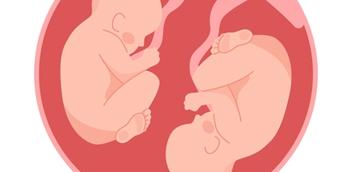
Does Stress Hinder Fertility?
Clinically meaningful data about stress and fertility has been reported by Longitudinal Investigation of Fertility and the Environment (LIFE) study researchers.
A woman’s stress level may hinder her fertility, new research suggests.
Higher stress levels, measured through saliva samples, were associated with a longer time to pregnancy and an increased risk of infertility, scientists reported in the journal
Pertinent Points
- Women with the highest levels of stress as measured through salivary alpha-amylase had a two-fold increased risk of infertility.
- Clinicians should suggest ways to ease stress, such as yoga, meditation, or mindfulness, and avoid placing blame, which may create more stress.
Researchers measured salivary alpha-amylase levels in 401 women who were attempting to conceive and who had no known fertility problems. The women were followed for a year as they tried to conceive and through the pregnancy if one occurred. The study was conducted from 2005 to 2009 in Michigan and Texas.
Eighty-seven percent of the women in the study became pregnant. The researchers found that women with the highest levels of alpha-amylase had a two-fold increased risk of infertility (relative risk, 2.07; 95% CI, 1.04-4.11). Specifically, women in group with the highest tertile of alpha-amylase levels exhibited a 29% reduction in longer time-to-pregnancy compared with women in the lowest tertile (fecundability odds ratio, 0.71; 95% CI, 0.51-1.00]; P < 0.05).
"This is now the second study in which we have demonstrated that women with high levels of the stress biomarker salivary alpha-amylase have a lower probability of becoming pregnant, compared to women with low levels of this biomarker,” said Courtney Denning-Johnson Lynch, PhD, director of reproductive epidemiology at The Ohio State University Wexner Medical Center and the study’s lead author, in a news release. “For the first time, we've shown that this effect is potentially clinically meaningful.”
While the authors specifically note in the study that clinicians should be cognizant to avoid blaming women, and adding additional stress, they suggest that stress reduction techniques may be useful for women of reproductive age who are trying to conceive. Yoga, meditation, and mindfulness were cited by the authors as effective stress reduction techniques.
Newsletter
Get the latest clinical updates, case studies, and expert commentary in obstetric and gynecologic care. Sign up now to stay informed.









